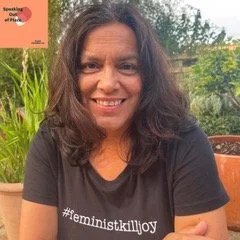How to Build Relationships, Hook Up & Raise Hell Together: Conversation w/ DEAN SPADE - Highlights
/Conversation with DEAN SPADE about How to Build Relationships, Hook Up, and Raise Hell Together
This book has a lot of the wisdom of things that feminists and queers have learned in the community about sexuality, but the book is really for anybody who is political, even those just starting out and beginning to realize that there is something wrong with the systems they live under. I want to be in movements. Our movements are made of relationships. So, if you're just getting into our movements, or if you've been here for years and have been watching the ways we hurt each other and fall apart relationally, this book is about identifying these common patterns.



















